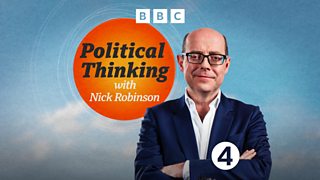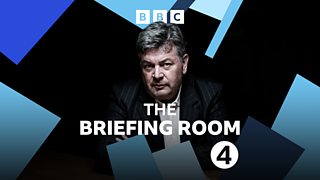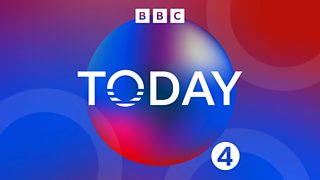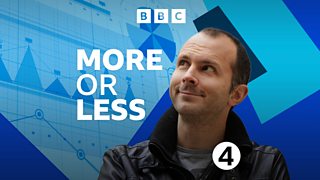11 things we learned about Kit Malthouse

A new member of Liz Truss’s first cabinet as PM, Kit Malthouse has been appointed the fifth Education Secretary in little over a year. The trained chartered accountant is a passionate Conservative who cut his teeth in student politics before embedding himself at Westminster City Council, and going on to become Boris Johnson’s deputy at City Hall.
In a candid interview for Political Thinking with the BBC's Nick Robinson he talks about growing up in Liverpool, his priorities for education in England and why he’s simply not interested in the celebrity side of the job.
Here are eleven things we learned about the new Education Secretary.
1. He feels seasoned to the “rollercoaster” of politics
It’s been a rocky couple of weeks for the Conservative Party: the pound plummeting following the new Chancellor’s mini-budget and then subsequent policy U-turns. But Kit Malthouse says he’s not thrown by a touch of political turbulence.

Little boys from South Liverpool... you can be whatever you like in life...
“I got elected in 2015 and it’s been pretty much a rollercoaster ride since 2016, so leadership elections, general elections, referendums, pandemics, wars,” he says. “It’s been a bit of a rollercoaster so I sort of feel a bit seasoned towards it.”
2. He’s a “low tax Tory”
Ultimately, Kit’s in favour of the tax cuts that Liz Truss and Kwasi Kwarteng have announced.
“If you look back at my record, I’ve always been a kind of low tax Tory,” he says. “I do believe strongly that giving people autonomy in their life also means autonomy over their finances, to make choices for themselves and for their families.” As a capitalist he wants people to participate in capitalism and that means leaving them with money to invest as they choose. “It shouldn’t come as a surprise that I’m very much aligned on the policy that the Prime Minister is promoting,” he says.
3. His Liverpool background “radicalised” him to become a Conservative
Kit grew up in Liverpool in what was an incredibly politically charged time. It was rebelling against the status quo that pushed him towards Conservative politics.
“I definitely think that the atmosphere in the city during the 1970s and 80s kind of radicalised a generation of young people to become Conservatives,” he says. “We all watched as the hard left, under Derek Hatton, essentially destroyed the city.”
“It made me think that there must be a better way,” he recalls, “and it coincided with a Conservative government nationally who, as far as I could see, were kicking in doors for people like me… little boys from South Liverpool, basically saying you can be whatever you like in life.”
4. His parents showed him the value of good education and hard work
Kit’s father was a chartered accountant and his mother was a lawyer. But when he was born, they were “a pair of penniless students.”
“Both of my parents were first in their family to go to university. Both came from modest backgrounds in Yorkshire… And they built a life in Liverpool which was prosperous. My dad started a business and built it up. My mum worked very hard to become a lawyer.”
“They are prime examples of the value of good education and hard work,” he states. “I watched their progress from literally having nothing through to being well off.”

Minister "surprised" at market reaction to tax cuts
Kit Malthouse says Liz Truss had "advertised" a change in approach in her leadership bid.
5. University provided his first real taste of politics
“Newcastle uni where I went was a kind of hotbed of activism,” he recounts. “When I got to university, I got involved with the Conservative group there.” The very first election campaign he worked on was in 1987, for a young Tory MP in Darlington. “That sort of started me on the road I guess to being politically active.”

He also wrote satirical pieces for the university newspaper, tearing strips off his Labour counterparts. “Student politics then was quite red in tooth and claw and there was a lot of winding each other up,” he recounts.
6. He tried to launch a low-cost airline
Kit didn’t go straight into politics after graduating. At first, he had ambitions to be an accountant but soon realised that wasn’t for him. “I wasn’t a brilliant accountant… and so I resigned the day I qualified and decided that I had to do my own thing.”
Over the years, he’s started various businesses, some more successful than others. One, a domestic low-cost airline called Hop, aimed to provide flights between UK cities. “In the end, the business didn’t really take off,” he admits. Despite his best attempts, it “didn’t fly.”
7. He’s not embarrassed about his business failures
“I’m not shy about my business failures,” he says. “I learned a huge amount from them… If you look at entrepreneurs, the most successful ones are the ones who have had misfires in their record and eventually get it right.”
If the government wants to see economic growth, he says it needs to actively encourage a culture that allows people to take risks: “It is really hard work to start a business. It is stressful, it’s difficult, it takes time, sweat, money, your whole family very often put on the line. That is a psychology that we have to grasp if we’re going to help more people do more of that, to build those businesses that will build the growth we need.”
8. Working for Westminster Council taught him how to squeeze value out of every pound
Kit was Deputy Leader at Westminster Council for five years. It had a reputation for bearing down on spending and promoting value for money.
“It was a great lesson in what can be achieved,” he recounts. “The trick we set ourselves, under the late great Simon Milton as leader, was to pull off the impossible, which was to have the lowest council tax in the country and be top of the local government league tables… and we managed to do it.”
“That taught me an enormous lesson about financial rectitude and the ability to squeeze the maximum amount of value out of every pound.”

9. As Education Secretary he’ll be pushing for progress not extra cash
“Education in this country over the last ten years or so has been an enormous success,” says the new Education Secretary. “Schools are in a much better place than they were. We’re moving up the international ranking tables quite rapidly.”
To me, it’s about the mission.
In his new role, he’ll be having conversations with Treasury colleagues, but he won’t be demanding more funds. “What I’ll be fighting for is not necessarily money but progress,” he states, “because while we’ve had huge improvement across schools, we now need to bring those who aren’t up to the level of the best, forward, and we need to do that quickly.”
10. He thinks Boris was a “potent political force”
“I learnt at City Hall that Boris Johnson was a very potent political force. An extraordinary personality that British people found attractive. And I felt that when he became Prime Minister, we would see that success that he’d had at City Hall for eight years.” As Boris’s deputy he’d witnessed him winning the mayoral seat twice and, following that, how instrumental he’d been in the referendum victory. “I had assumed that it would continue, but a combination of events meant that wasn’t to be.”
11. He’s not interested in the celebrity side of politics
He denies being a Gordon Brown to Boris’s Blair, doing all the hard work without the glory.
“There was an American politician who said there’s no end to what you can achieve in politics if you’re not interested in who gets the credit,” says Kit, “and to be honest with you, I’ve always been a very mission focused person. I’ve never really been that interested in the celebrity side of politics. To me, it’s about the mission.”

Current affairs on Radio 4
-
![]()
Political Thinking
Nick Robinson has a conversation with, not an interrogation of, the people who shape our political thinking about what shaped theirs.
-
![]()
The Briefing Room
David Aaronovitch and a panel of experts and insiders present in-depth explainers on big issues in the news.
-
![]()
Today
News and current affairs, including Sports Desk, Weather and Thought for the Day.
-
![]()
More or Less
Tim Harford explains - and sometimes debunks - the numbers and statistics used in political debate, the news and everyday life.



